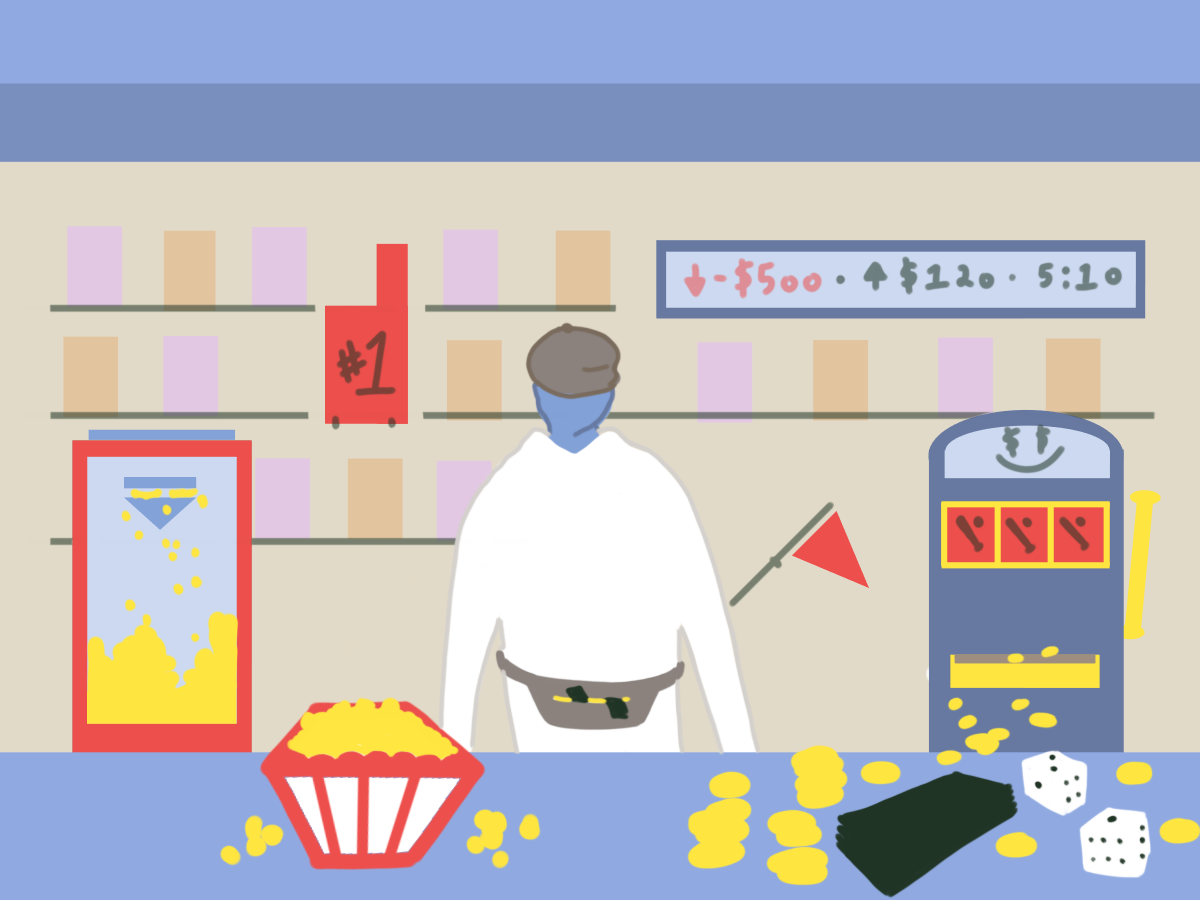With the approval of Bill C-218 in June, what will the consequences be for Canadian sports fans?
The unpredictability of sport is attractive.
The sudden turning points at the end of a game entertain the masses and leave them on the edge of their seats. That single unexpected play that turned the game on its head sparks discussion and excitement for hours after the last whistle is blown.
For many, that excitement is usually propelled by external elements. The majority are usually booze-fueled; just intoxicated enough to know what’s going on, but too sloppy to contain themselves with the excitement of a closing play. The minority, however, are fueled by something different: a vice that will now be prevalent in professional sports in North America with the approval of Bill C-218 in June, legalizing single-event sports betting in Canada. That minority might soon become the majority.
Some people find that betting on sports not only provides added excitement, but also keeps those who were once uninterested now glued to the screen. Jack Allen happens to be one of those people. Not being a big sports fan himself, a few single-event side bets on offshore apps like bet365 kept him interested in not only the outcome of the game, but the sport itself.
“[Betting] gave me a reason to actually care about the sport I was watching,” Allen said. “My friends watched sports and I would watch from time to time but wouldn’t really care, but now that betting is involved, I’m more interested in the outcome.”
As of this upcoming season, sports fans will now have the option of betting on multiple factors in one game — the Super Bowl for example — in real time.
According to the Canadian Gaming Association, an estimated 10 billion dollars annually has passed through illegal bookmaking operations. Four billion dollars was spent through offshore betting apps while only 500 million dollars passed through legal provincial lottery processes. In theory, this bill will supposedly eradicate black market gambling, create jobs, and protect consumers, all while establishing a safe and legal betting option.
Entertainment companies have been on the move since the legalization. From Caesars expanding their online betting platform to Ontario, to BetMGM signing Wayne Gretzky in an attempt to expand from coast to coast, one thing is clear: gaming and entertainment companies are competing to become the conglomerate in Canadian sports gambling. However, will repeated exposure and accessibility to sports betting affect people who are most vulnerable? With Ted Leonis, owner of the Washington Capitals in the NHL and Wizards of the NBA granting betting kiosks inside their arena, and more teams to follow suit potentially in the future, where in entertainment do we draw the line?
Dr. John Sader is a family physician who also sub-specializes in addiction. Having worked with all types of patients with varying addictions, Sader believes that not everyone is susceptible to the exposure of gambling in sports.
According to Dr. Sader, addiction depends on factors like inherited genetics, and how those genetics manage dopamine releases in the brain when performing a pleasurable task. From his experience, he explained that on average, 75 per cent of people who suffer from addiction also suffer from a genetic variant of postsynaptic dopamine receptors in the brain.
“There are people who are born with hypo-receptive receptors. With the same level of normal stimulation, they feel much less pleasure.”
In order to feel pleasure, someone who is born with these receptors will ramp up their activity at a higher level than a normal person.
“Addiction has to start somewhere; it starts by liking something too much to the point where you can’t control it anymore,” Dr. Sader said.
The National Council on Problem Gambling released a report before the legalization of single-event betting voicing their concerns over the negative attraction it can have for people, citing that sports betting is twice as likely to occur in comparison to other forms of gambling. With 45 per cent of sports bets conducted online, the rate of exposure and convenience is higher. The report also states that single-event betting offers more betting options on a single game than ever before. The increased speed between bet and reward will also increase the frequency in which people gamble. On top of all this in the age of doing work remotely, people now have more free time on their hands than ever before.
Dr. Sader has personally noticed an uptick in gambling admissions over the course of the pandemic, as people were forced to stay cooped-up inside.
“They can’t go to the restaurant, they can’t go to the movies, they can’t do anything pleasurable. I can only imagine these hypo-dopamine people are suffering even more. Then you start to advertise gambling, and they can do it from their home, it’s on the internet, they start playing and they have fun and a lot of them will get caught up in gambling,” Dr. Sader said.
It’s still too early to tell what effect single-event sports betting will have on sports in general, and the people who watch them. In a time of mass consumption, the approval of this bill will increase viewership and revenue for sports leagues across North America, but at what cost?
As for now, the main challenge for many fans this upcoming season will be toeing the fine line between entertainment and addiction.
Graphic by James Fay




